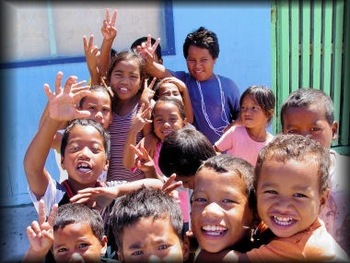RMI Education and Skills Strengthening Project
The Government of the Republic of Marshall Islands has gotten funding from the World Bank for the Education and Skills Strengthening Project (ESSP) cost. It plans to use part of the profits for consulting services.

The consulting services ("the Services") will help the Project Manager and the RMI National Training Council in carrying out the World Bank-funded project successfully.
The assignment will concentrate on supporting the Project Implementation Unit (PIU) in developing a structure for Recognition of Prior Learning (RPL) for TVET, focused on helping the College of the Marshall Islands and the RMI National Training Council examine and improve the skills of workers through certified college certification.
The detailed Terms of Reference (TOR) for the project are suggested in the connected Terms of Reference (ToR).
The National Training Council now welcomes eligible individuals ("Consultants") to suggest their interest in supplying the Services. Interested Consultants ought to provide information showing that they have the needed credentials and pertinent experience to carry out the Services (connect a Cover Letter of no greater than 4 (4) pages attending to the mandatory experience and certification requirements curriculum vitae with a description of experience in similar projects, comparable conditions, and so on). Firms' personnel may reveal interest through the employing company for the assignment. In such a situation, just the experience and credentials of individuals shall be considered in the selection process. The criteria for electing the Consultant are: A.
Mandatory Qualifications and Experience Master's degree in education, training
, management, or a related field. Minimum of 5-10 years of experience working in TVET System. Curriculum Design and Systems.
Have 2-5 years' experience creating and
carrying out RPL. structures, policies, and treatments. A sample of previous work will be required as evidence of previous experience. Excellent interaction, training, and assistance
abilities. Experience with working with diverse stakeholders, including federal government. firms, TVET organizations, employers, and students in the Pacific. B. Desired Qualifications and Experience Ability to deal sensitively in a multicultural
environment and build reliable team relationships with clients and appropriate stakeholders. The attention of interested Consultants (including companies )is drawn to paragraphs 3.14, 3.16 and 3.17 of the World Bank's"
Procurement Regulations for IPF Borrowers "July 2016 modified November 2020" Procurement Regulations ", setting forth the World Bank's policy on dispute of interest. More info can be obtained at the address listed below throughout workplace hours, 0900 to 1700 local time. Expressions of interest must be
provided in a written type to the address listed below (face to face or by e-mail )by 5:00 pm, 23rd December 2024.
The subject line needs to state:"National Training Council Strategic Plan Consultant -complete name of the prospect". Julius Lucky Director National Training Council!.?.!ntcdr@ntcinfo.org:Phone: 692 625-4521 Empowering Community Champions for Sustainable Development in rmi national training council Gender Equality, Climate Resilience and Water Safety Training Majuro,
Republic of the Marshall Islands: The fourth
Women and Youth Training for
Gender Equality, Climate Change, Disaster Risk Reduction and Water Safety Management has actually just recently happened at the University of the South Pacific's campus in Majuro, the Republic of the Marshall Islands(rmi national training council ). This crucial training was arranged by the United Nations Development Programme( UNDP )Pacific Office through the Addressing Climate Vulnerability in the Water Sector(ACWA) project. The week-long capacity-building training intended to empower females and youth with the understanding and practices required for climate-resilient water safety management in the
Republic of the Marshall Islands(rmi national training council ). This training reinforces a dedication to boosting rmi national training council's water security and community strength versus climate change effects, particularly women
and youth, making sure that no one is left. The training invited individuals from all 24 atolls and included resource speakers from federal government agencies, non-governmental organizations, and international advancement partners from the RMI Environmental Protection Authority, Climate Change Directorate, Office of the Chief Secretary, Ministry of Culture and Internal Affairs, National Disaster Management Office, Women United Together Marshall Islands, RMI Human Trafficking Task Force, Waan Aelõñ in Majel, Jo-Jikum, and the International Organization for Migration. In her opening remarks, Secretary for the Ministry of Culture and Internal Affairs, Brenda Alik, underscored the significance of collective action in building a climate-resilient nation."It is our responsibility to come together and work together. As we deal with the difficulties postured by environment change, understanding its impact on our water resources is important for enhancing the wellness of neighborhoods across the Marshall Islands,"she stated.
rmi national training council Environmental Protection Authority General Manager Moriana Philip highlighted in her speech the essential function of females and youth in addressing climate-related challenges."This workshop unifies us from various communities to resolve the pressing problems we deal with today, consisting of climate-related difficulties, particularly on our water resources."We wish to stress the vital function of females and youth in this job as your involvement is instrumental to its success and beyond, "she stated.
The very first day of the workshop covered crucial problems connected to gender equality, human rights, and public health within the Marshall Islands. It included conversations on gender equality and mainstreaming, concentrating on the impacts of climate change on water security and the disproportionate effects on susceptible groups. The importance of incorporating gender equality and social addition into all job elements was likewise gone over. Human rights and human trafficking were taken on, stressing the requirement for detailed defense of susceptible populations
throughout emergency situations. Furthermore, the workshop attended to gender-based violence, highlighting the different types that can emerge in disaster circumstances, such as domestic violence and sexual coercion. The program concluded with a focus on sanitation and hygiene and their vital function in health, incomes, school attendance, self-respect, and building resilient neighborhoods. ACWA Project Manager Koji Kumamaru expressed his appreciation to all individuals
, stressing the significance of their contributions to their neighborhoods."Women and youth are essential to the success of the ACWA job. More notably, you are the champions and future leaders who will go back to your communities to empower others,"he said. During the workshop, participants checked out Rongrong Island and analyzed the 15,000-gallon Flatpack Modular water tank set up at the Rongrong High School Boys Dormitory as part of the ACWA project. The setup is an essential element of the project, matched by assistance from Australia
's Department of Foreign Affairs and Trade. The see acted as an important direct experience of the favorable effect of the ACWA job on the community and its
water resources. Marie Naisher from Jabat Island expressed her appreciation for the opportunity to join the workshop and made clear her desire to be part of the project when it reaches Jabat.
"This was my first time participating in such training, and I discovered a lot from the guest speakers, group activities, and the site check out. I now comprehend the significance of clean water and how to sterilize it. I'm thrilled about the ACWA task coming to Jabat and ready to assist when it arrives,"she said. Don Kobney, an ACWA site coordinator from Santo, Kwajalein, likewise shared his enjoyment."The workshop and website see boosted my confidence and understanding of the water tank installation.
Seeing the 15,000-gallon flatpack modular water tank firsthand offered me a clear understanding of the system, and I'm eagerly anticipating sharing this knowledge with my community, "he stated. By the workshop's end, individuals were much better geared up to comprehend climate change and its regional effects, drive adaptation and mitigation efforts, especially in water security, and use brand-new resources to affect their communities favorably. ACWA is made possible thanks to the support of the Green Climate
Fund, with the task co-financed by the Government of the Republic of the Marshall Islands
. The Marshall Islands: Skills Training and Vocational Education Project Examines the performance of the job and highlights lessons. Supplies inputs to two broader evaluations- the regional assessment of ADB support for the Pacific and the unique assessment research study on Millennium Development Goals. The low academic attainment and scarcity of Marshallese skilled workers were mostly due to the poor quality of fundamental education, absence of access to education in the external islands, and weaknesses in abilities training and the occupation and technical education system.
These supported an economy marked by high unemployment because of constrained private sector development and government downsizing. Joblessness was especially high amongst the youth and ladies in the outer islands. Appropriate regional proficient workers for existing job vacancies
were not available, thus the importation of appropriately competent foreign workers. Therefore, there was a mismatch between readily available jobs and abilities of the Marshallese labour force. These conditions supplied the initiative for the Government
of the Marshall Islands to focus on technical and vocational education training reforms. In 2000, ADB authorized a loan for $9.1 million to improve abilities training to provide trained employees required for continual financial and social development. This was to be accomplished through an integrated national skills training system. The job consisted of four components: advancement of a profession awareness program, abilities training improvement, improved abilities training opportunities for females and youth, and institutional fortifying. The anticipated result was increased income-generating opportunities and work for students, specifically females and youth in the external islands. Overall, the task was rated unsuccessful. Limited progress was attained in making the project responsive to the requirements of its recipients and private-sector employers. The long-standing weak point of poor numeracy and literacy competencies
among public elementary and secondary school graduates and dropouts entering college or attending voc-tech education could be partly attributed to the poor quality of fundamental education. The task was supply-driven and might not develop a strong linkage with private sector requirements or align its activities with the requirements of the labour market. The status of the technical and occupation education training system has remained essentially the very same after project completion. The research study advanced that ADB could encourage the Government of the Marshall Islands, through assessment and policy dialogue, to follow through on the government's
dedication to developing a dedicated labour info system to link technical and vocational education training program offerings with industry demand. Although the task established a labour market information system, in the absence of internal personnel capability at the National Training Council, it was not totally operational.








